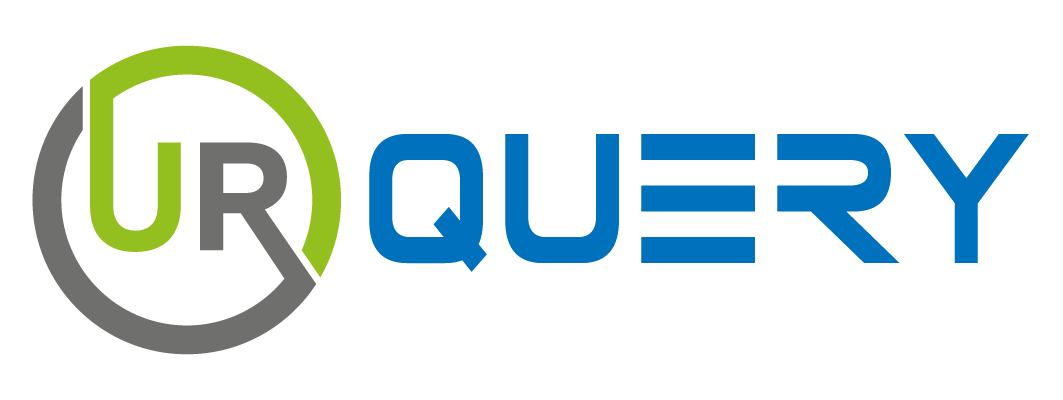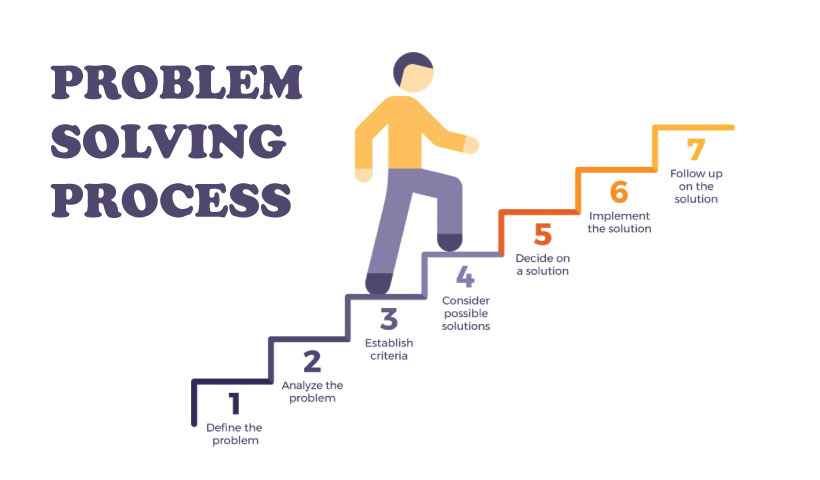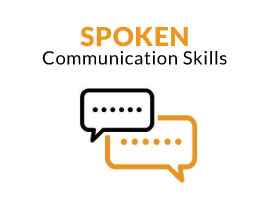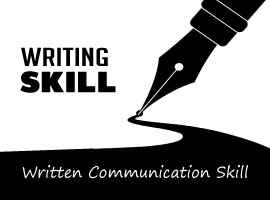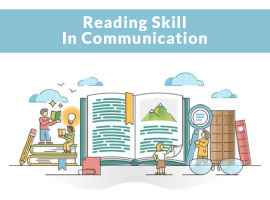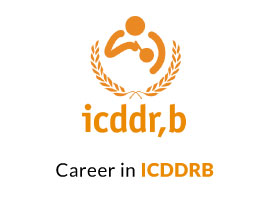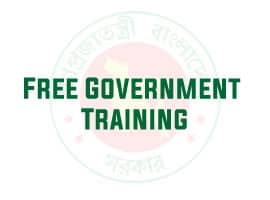Most prominently, problem solving skills make you potent to analyze and critique various states. Thus, you can grab the best solution is a skill that can be useful for any field. Truly, critical thinking skills are exigent for problem-solving, as you need to be able to identify the facts. It is emergent to do before coming up with solutions. In addition, the leaders will sort the hitches very easily.
Oftentimes, it is emergent to discern how what you are trying to attain fits into larger goals or objectives. Here, the set of skills comes into play. After that, you become potent to keep track of diverse aspects of your project.
Consequently, everything remaining on schedule and within budget is crucial for effective problem-solving outcomes. Additionally, it is emergent to effectively connect with others. Here, we will cognize more in the next lines.
Problem Solving Skills
Problem-solving skill is the ability to identify and solve problems. Truly, it helps us navigate through grim states, find solutions, and adapt proactively. You know what; ineffective problem solving can lead to frustration and even conflict. So, the best way to improve your problem-solving skill is by practicing them routinely. Here, you can do it in a variety of ways to boost your leadership module.
Certainly, practice recognizing when you are facing a challenging state and brainstorming potential solutions with your colleagues or family members. Besides, you may take on challenges that you may not normally ponder. Above all, you must spend time every day trying something new. As you become more comfortable with these tasks, they will start to feel less daunting.
In this case, you will need diverse skills in order to solve problems effectively. For instance, we can name critical thinking skills, efficient communication techniques, decision-making abilities, and analytical reasoning. When these skills are combined together through problem-solving processes you will be potent to arrive at successful solutions.
Importance of Problem Solving Skills
Well, these skills are exigent for any career, especially in today's competitive environment. By being able to think accurately and come up with creative solutions, you can stand out from the competition. One of the best ways to improve your problem-solving skill is by participating in online courses that teach different methods for problem-solving.
In addition, these are needful for any career, but they are especially emergent in the fields of business and engineering. Problem-solving is a process that allows individuals to identify problems and find solutions. It can be applied in many different settings, such as at home or at work. In this part, we will guide you to discern the apt importance of this skill set.
• Fundamental For Professional and Personal Aspect:
As a professional, you will inevitably face various problems that require problem-solving skills. From managing time wisely to working under pressure and meeting deadlines, problem-solving is an emergent skill. Truly, it is essential for any person in a leadership position.
Furthermore, personal life can be just as challenging. Whether it is figuring out how to pay the bills on time or dealing with relationship issues, it helps highly. In short, developing strong problem-solving skills is exigent for both professional and personal success.
• Easing Tool for Carrying Out Responsible Role:
Truly, skills can help to carry out the role of a responsible position. A good problem solver is able to identify and solve problems quickly and efficiently. After that, it can lead to proactive decision-making that helps them tackle challenges head-on.
However, this exigent skill also allows people to stay organized and on top of their workloads. Besides, it ensures that they are always prepared for whatever comes their way. Conversely, these skills are exigent for any position where there may be unexpected challenges or pressures.
• Vital Element to Ponder Out of the Box:
Well, we have no doubt that problem solving skills are emergent for anyone looking to achieve success in any field. By being able to think outside the box, you can come up with unique solutions that were not pondered before. This skill is also exigent for those who want to become entrepreneurs or self-employed professionals.
One of the key things you need to do when working on a problem is to identify the possible options. Here, once you have a clear idea of what can be possible. It is then an emergent fact to explore each option in detail. In fact, you may need to try out diverse lines until you find one that works well.
• Emergent Part of Crafting Strategy:
The skill varies depending on the individual's unique situation and challenges. However, it is helpful to organize and monitor your progress, break large goals into manageable tasks, and set deadlines. Additionally, it will help you stay focused and motivated throughout the entire project.
In this way, the set of skills will guide you to craft an action plan. Here, it involves identifying and resolving complex problems. By learning how to approach and solve problems, you can take control of your own life. Thus, it will aid you in becoming better equipped for whatever challenges may come your way.
• A Booster for Opportunity Exploration:
A problem solver can check on their feet and arise with inventive ideas in order to solve a problem. They also have the ability to transfer well, which is key when it comes to writing engaging, informative content. Besides, it can help you explore more opportunities and find solutions to your problems.
When you utilize these skills effectively, you can resolve conflicts peacefully, manage stress better, and improve working relationships. In addition to these benefits, these skills can also lead to career growth. Certainly, these things are usable in certain fields such as business or law enforcement.
How to Solve a Problem in Life
Truly, you may have a quest to discern the ways how to solve a problem in life. For this reason, we have decorated this phase. Here, the first step is to identify the problem. Once you discern what it is, you must try to come up with a solution or plan of action. Next, it is time to put your solution into action by taking steps one-by-one until the goal has been achieved.
Here, you will need to be persistent and never give up. Later, you will see that success lies ahead. Certainly, it may be grim if you do not discern what the problem is. But, you must explore diverse ways to get started. One way is to write down everything that has happened since the beginning of your issue.
Chronologically, you may place each event in its appropriate place.
Once you have an overview of the situation, you must begin thinking about possible solutions. Actually, you should not try to overthink. Here, you must start with one or two ideas and see where they take you. After grabbing a few potential solutions, you should test them out by trying them out on small scale. The process should run until you feel calm about the outcomes.
Problem Identification Steps
Undoubtedly, we are going to reveal a very emergent aspect. Actually, the way from problem to solution goes in two phases. Firstly, you have to identify the problem. Secondly, you will need to discover the apt solution. Thus, you can run your business efficiently. Besides, this method is pertinent for personal aspects as well. Let's discern the accurate steps of identifying a problem.
• Analyzing the Current Condition:
Firstly, you must analyze the current state of business or personal aspects. In fact, analyzing it is a critical step in problem identification. By doing it, you can determine what needs to be repaired or fixed in order to restore normal operations. Furthermore, it is also an emergent fact to assess every change.
• Finding out The Causes:
When you are trying to identify a problem, you must dig out the root causes. This process can be grim and time-consuming. But, it is handy if you want to get past the initial stages of fixing whatever issue exists. By understanding where the problem started, you can work on finding solutions.
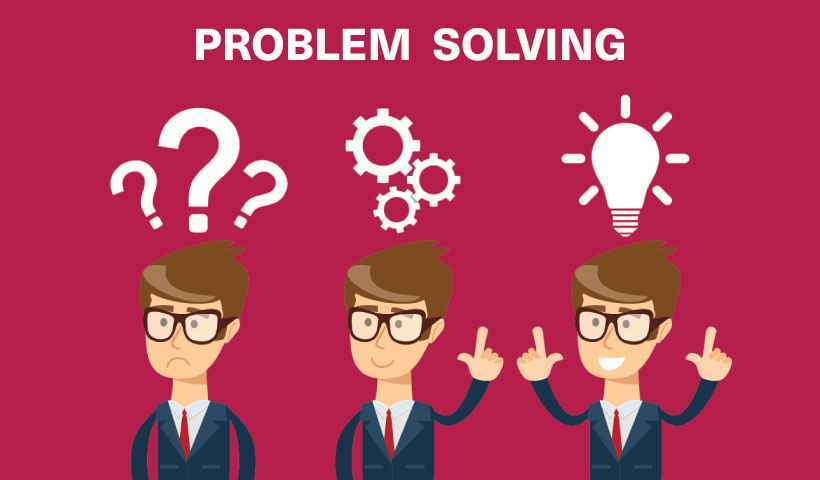
• Collecting Data:
Data collection is the first step in identifying a problem and finding a solution. By gathering information on your customer base and their usage patterns, you can identify areas that need improvement. This gives you an idea of what needs to be done in order to keep your customers happy and satisfied.
• Pin Pointing the Actual Problem:
Finally, you must pinpoint the actual problem. By investigating what caused the issue, you can prevent it from happening again. Here, it may include looking at factors such as faulty equipment, poor work practices, or environmental factors.
Problem Solving Process Steps
Now, the second phase comes to explore the ways of solving a problem. In this case, you may craft a hypothesis that explains how your proposed solution will work. Besides, you may cognize how it will benefit your aimed attainment. However, you may conduct research in order to test your hypothesis and confirm that it is actually effective. Let’s check out the details of this phase.
• Defining the Goal:
Firstly, defining the goals is a key step in problem-solving. It can be grim if you do not have a clear idea of what you are trying to achieve. However, by taking some time to think about your objectives, you will be better equipped to find solutions. After that, the solution will be both effective and efficient. Once you have your goals, the process of finding a solution will start.
• Crafting An Action Plan:
Secondly, evolving an action plan is a needful step in problem-solving. Without a plan, it can be dingy to discern exactly what you need to do in order to achieve your goals. An action plan helps you stick to the steps required to solve the issues that you are facing. It also allows you continuity between diverse stages of the problem-solving process.
• Implementing the Strategy:
Thirdly, implementing the action plan is a needful step in the problem-solving process. In fact, you may not be able to identify solutions or take any effective actions, if you have no plan. Here, it should provide you with a clear and concise plan of action that addresses the identified issues. Additionally, it should include deadlines and checkpoints so that you can track progress.
• Appraising The Results:
Finally, it is a needful step in the problem-solving process. Having an evaluation and critique of your results will help you to learn from your mistakes. Besides, it will improve in certain areas. Above all, it also allows you to share your results with others so they can help you further develop your skills.
Conclusion
In the end, we can see that problem solving skills are the tools for finding a solution to a challenge. In fact, it can be grim, but with practice and patience, you can become better at it. Above all, you may observe diverse types of problems that you may encounter in your life. For instance, we can include school assignments or workplace challenges. But, every problem will make you cognize the amazing way of grabbing solutions.
